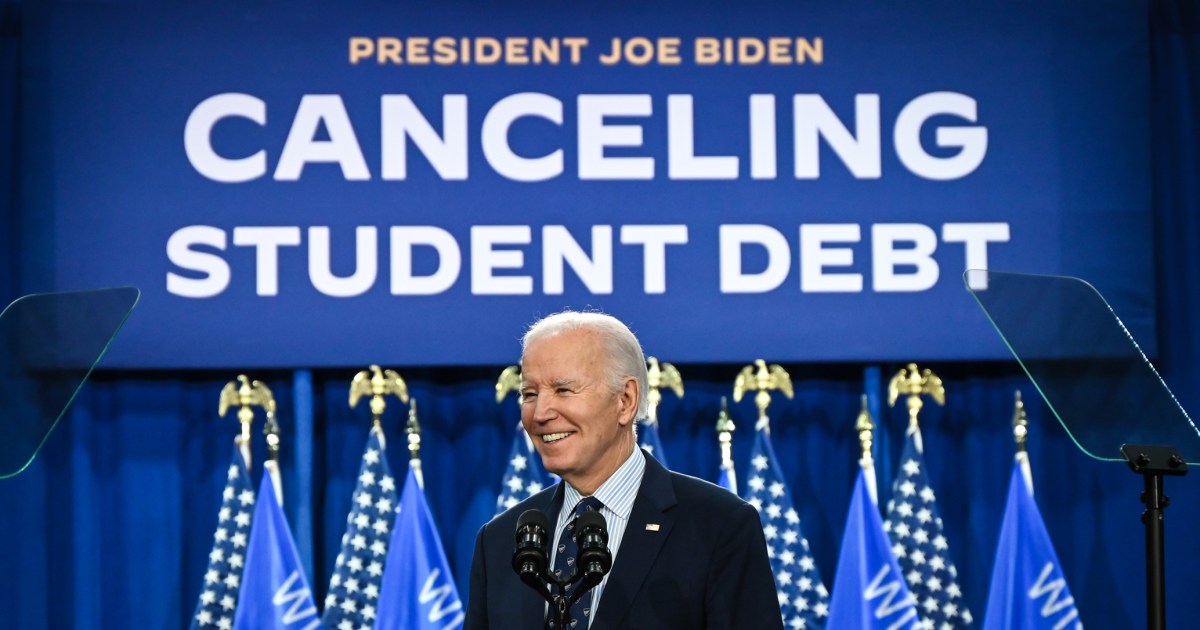
Biden's student loan forgiveness plan can take effect after judge lets restraining order expire
Posted on 10/03/2024

President Joe Biden's student loan forgiveness program can proceed after a judge Wednesday let a temporary restraining order on the plan expire.
It’s a minor victory for the Biden administration just weeks ahead of the presidential election. The lawsuit was brought in September by seven GOP-led states — Alabama, Arkansas, Florida, Georgia, Missouri, North Dakota and Ohio — against Biden and Education Secretary Miguel Cardona.
U.S. District Judge Randall Hall wrote in his order, filed in the Southern District of Georgia, that Georgia lacks standing to challenge the plan "because it failed to show an injury that is concrete, particularized, actual, or imminent."
"Without standing, the Court finds it proper to dismiss Georgia as a party to the suit for lack of subject matter jurisdiction and turns to Defendants’ arguments related to venue," he wrote.
The judge also wrote that the court agrees with the federal government's argument that the venue was improper.
"Without standing, Georgia cannot provide the proper venue for suit because a plaintiff that lacks standing cannot create venue where it would not otherwise exist," he wrote.
The judge said that the "most equitable result" is to transfer the case to a district "in which venue is proper." He wrote that he would transfer the case to the U.S. District Court for the Eastern District of Missouri.
The states that brought the lawsuit have argued that the administration’s rule that would mass-cancel student debt would be detrimental to income tax revenue.
Last month, Hall had extended a temporary restraining order on the plan for an additional 14 days.
This comes ahead of the Biden administration publishing its final rule on the plan this month, which could cancel student debt for more than 25 million borrowers.
Biden laid out the revised plan in April after the Supreme Court nullified the administration’s original student debt forgiveness program in 2023. That plan would have benefitted 43 million borrowers by canceling up to $20,000 in debt, potentially costing more than $400 billion.
It’s a minor victory for the Biden administration just weeks ahead of the presidential election. The lawsuit was brought in September by seven GOP-led states — Alabama, Arkansas, Florida, Georgia, Missouri, North Dakota and Ohio — against Biden and Education Secretary Miguel Cardona.
U.S. District Judge Randall Hall wrote in his order, filed in the Southern District of Georgia, that Georgia lacks standing to challenge the plan "because it failed to show an injury that is concrete, particularized, actual, or imminent."
"Without standing, the Court finds it proper to dismiss Georgia as a party to the suit for lack of subject matter jurisdiction and turns to Defendants’ arguments related to venue," he wrote.
The judge also wrote that the court agrees with the federal government's argument that the venue was improper.
"Without standing, Georgia cannot provide the proper venue for suit because a plaintiff that lacks standing cannot create venue where it would not otherwise exist," he wrote.
The judge said that the "most equitable result" is to transfer the case to a district "in which venue is proper." He wrote that he would transfer the case to the U.S. District Court for the Eastern District of Missouri.
The states that brought the lawsuit have argued that the administration’s rule that would mass-cancel student debt would be detrimental to income tax revenue.
Last month, Hall had extended a temporary restraining order on the plan for an additional 14 days.
This comes ahead of the Biden administration publishing its final rule on the plan this month, which could cancel student debt for more than 25 million borrowers.
Biden laid out the revised plan in April after the Supreme Court nullified the administration’s original student debt forgiveness program in 2023. That plan would have benefitted 43 million borrowers by canceling up to $20,000 in debt, potentially costing more than $400 billion.
Comments( 0 )
0 0 0
0 0 2






















